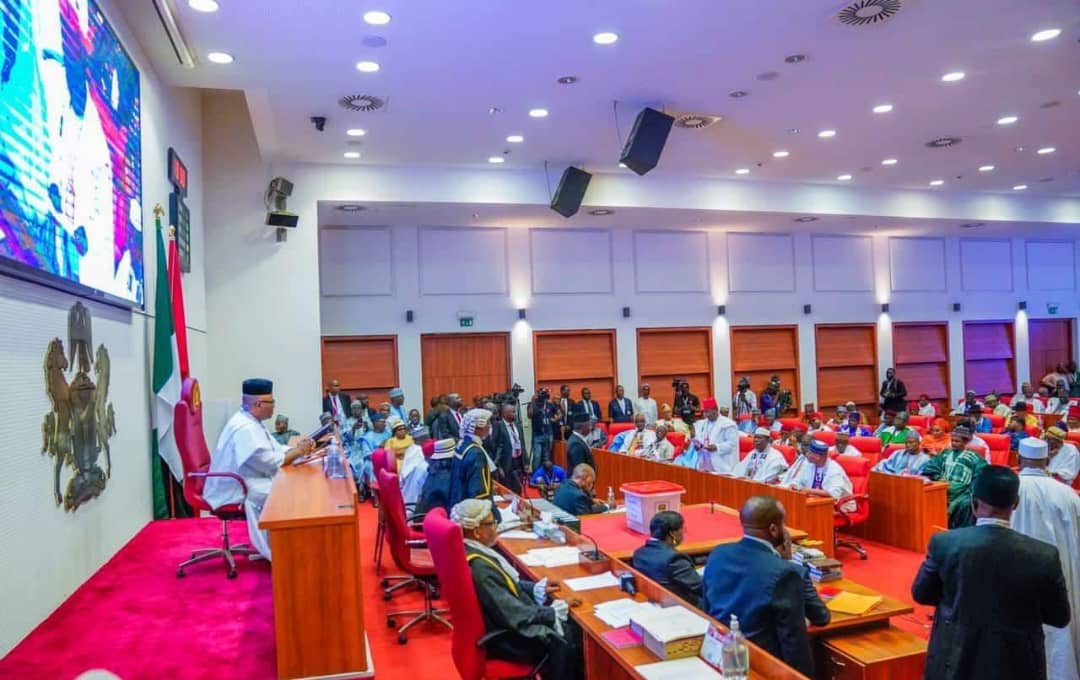
The Senate suspended further consideration of the proposed amendments to the Electoral Act 2022,following a heated debate that exposed deep divisions among lawmakers over the scope and content of the proposed changes.
The decision came after Senate President Godswill Akpabio raised concerns about the lack of clarity in the amendment proposals and used the opportunity to reflect on what he described as “grave injustice” meted to him during the 2019 general election.
The process had begun smoothly after the Chairman of the Senate Committee on Electoral Matters, Senator Simon Lalong (Plateau South), led debate on the general principles of the Electoral Act Amendment Bill, 2025.
Deliberations soon turned contentious when Senator Titus Zam (Benue North East) urged the Senate to pass the bill for second reading, prompting Akpabio to demand specifics on what aspects of the 2022 law being amended.
The Senate President pressed further, calling on Lalong to clearly outline the “nitty gritty” of the proposed amendments before the chamber could proceed.
Akpabio, while addressing his colleagues, digressed into his personal experience during the 2019 elections, alleging that he was unfairly treated in the aftermath of the Akwa Ibom North West Senatorial contest.
“What happened during the 2019 elections was unjust. The legislation was clear, yet those who were supposed to uphold it acted otherwise.
“The returning officer, Professor Peter Ogban, who served for 34 years at the University of Calabar, was wrongly sentenced to three years in prison instead of those truly responsible for electoral infractions,” he said.
He faulted the Independent National Electoral Commission (INEC) for what he described as selective enforcement of justice.
“The court had ordered that those who committed the offence be prosecuted, but INEC went after the wrong person. If the returning officer was really helping me, how come my votes were the ones affected?” he asked.
He further criticised the length of electioneering timelines, arguing that prolonged campaign seasons and transition delays often diminished the effective tenure of elected officials and hamper governance.
“Campaigns last for months, and then there are long pre-election processes. When appointees later become ministers, it disrupts governance and the timeline for national development. We must look at how to balance our electoral timetable with efficient administration,” Akpabio said.
Following the exchanges, Senate Leader Opeyemi Bamidele moved a motion that the bill be stood down to allow the Committee on Electoral Matters provide detailed clarification on the proposed amendments. The motion was unanimously adopted.
Sunday Aborisade



